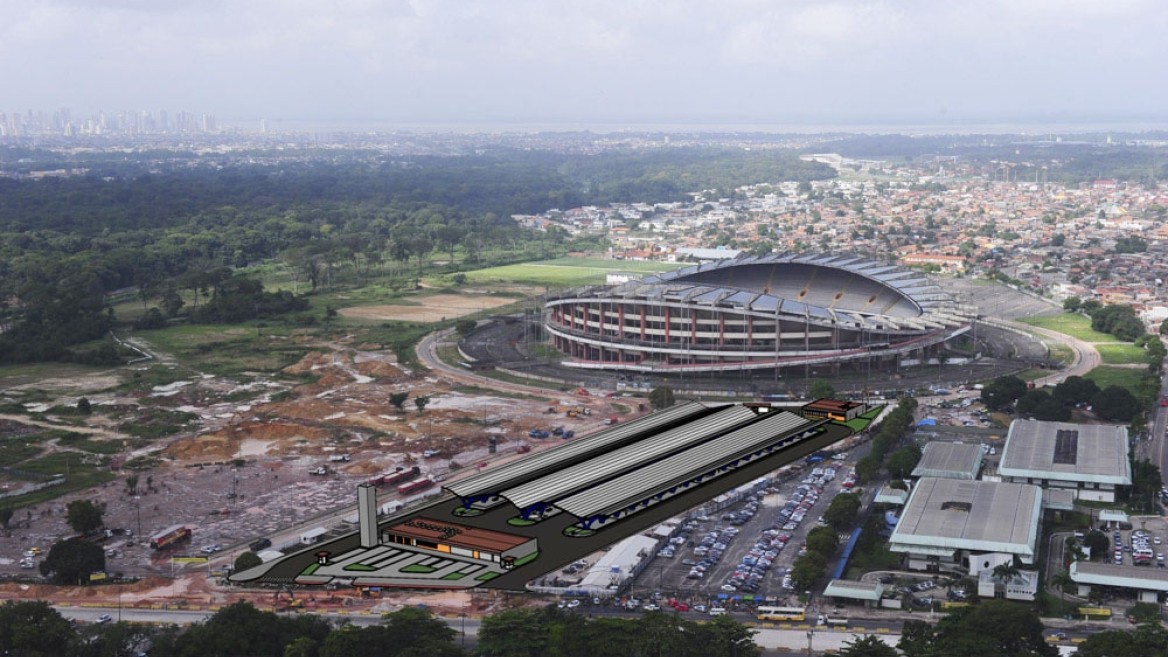Bus Rapid Transit System

GPO, A TYLin Company, developed the preliminary and detailed designs for segments of the BRT System for Belém do Pará in Brazil.
The local government of Belém do Pará, North Brazil, is developing the implementation of the Bus Rapid Transit (BRT) system, a bus-based mass transit system. The aim of the project is to increase central circulation of Almirante Barrosso, Augusto Montenegro, and Centenario Avenues, and later connect them to the Icoracai district and the center of Belém. These lanes will be 5,5 km long, and it is estimated they will be used by around a million passengers.
One of the central lanes will be exclusive for the BRT system, as well as some areas in the center of Belém, such as intermediate stations and passing lanes. Three terminals will be constructed to enable the transfer between main and secondary lines, as well as some stations with embarking/disembarking platforms and areas for advance purchase of tickets. The buses operating in the main lines will be articulated, and those operating in secondary lines will be simple.
GPO has developed the Preliminary Designs for the Secretaria de Urbanismo - SEURB (Ministry of Urban Development of Belém do Pará) of the following BRT sections:
-
From the center of Belém to the São Braz station, an 11 km-long section with 16 intermediate stations
-
Icoaraci district, a 3,7 km-long section with 9 intermediate stations.
GPO has also developed the Detailed Designs for the BRT Belém consortium of:
-
Augusto Montenegro, including the Mangueirão, Tapanã, and Maracacuera terminals and 11 intermediate stations, a 14 km-long section.
-
Mangueirão terminal, 2,7 km-long
Project Highlights
-
The BRT system will be integrated into the non-motorized transportation through the implementation of bike lanes along the entire main line.
-
The new urban design includes new accessible sidewalks and a landscape integration, which incorporates the well-known centenary mango trees, very typical from Belém.